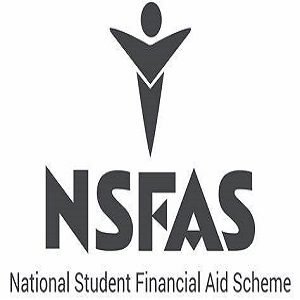Navigating Opportunities: Unveiling South African Bursaries & Scholarships
Introduction:
South Africa, a land of diverse cultures and rich heritage, is also a land brimming with opportunities for educational advancement. However, accessing higher education can often be financially burdensome. In recognition of this, numerous organizations, institutions, and governmental bodies offer bursaries and scholarships to deserving students. These avenues not only alleviate financial constraints but also pave the way for academic excellence and societal contribution. In this comprehensive guide, we delve into the landscape of South African bursaries and scholarships, exploring the myriad opportunities available and offering insights into the application process.

Understanding Bursaries and Scholarships: Bursaries and scholarships serve as vital mechanisms for promoting access to education and nurturing talent. While both terms are often used interchangeably, they have distinct characteristics. Bursaries are typically awarded based on financial need, whereas scholarships are granted on the basis of academic excellence, talent, or a combination of both. However, in South Africa, the terms are sometimes used interchangeably, and eligibility criteria may vary depending on the provider.
Government Initiatives: The South African government prioritizes education as a cornerstone of national development and social upliftment. As part of its commitment to ensuring equitable access to education, various departments and agencies offer bursaries and scholarships to students across different fields of study. The Department of Higher Education and Training, for instance, administers the National Student Financial Aid Scheme (NSFAS), which provides financial assistance to eligible students from low-income households.
Corporate Sponsorships: Corporate entities play a pivotal role in supporting education through bursaries and scholarships. Many companies in South Africa have established robust scholarship programs aimed at investing in the country’s future workforce. These programs often target specific fields relevant to the company’s industry, such as engineering, information technology, and finance. By offering financial support to talented individuals, corporations not only contribute to their own talent pipeline but also foster socio-economic development.
Institutional Support: Universities and colleges across South Africa also provide bursaries and scholarships to students, either through internal funding or in collaboration with external partners. These institutional awards may be merit-based, need-based, or targeted towards specific demographic groups or academic disciplines. Additionally, academic departments and faculty members may offer scholarships to outstanding students within their respective fields.
Non-Governmental Organizations (NGOs) and Foundations: NGOs and philanthropic foundations play a vital role in expanding access to education through bursaries and scholarships. These organizations often focus on addressing systemic inequalities and empowering marginalized communities. Scholarships offered by NGOs may target underprivileged students, individuals from rural areas, or those facing socio-economic challenges. By investing in education, these entities contribute to breaking the cycle of poverty and fostering inclusive growth.
Application Process and Tips: Navigating the application process for bursaries and scholarships can be daunting, but with careful planning and preparation, prospective applicants can enhance their chances of success. Here are some essential tips:
- Research Thoroughly: Explore available bursaries and scholarships, considering eligibility criteria, application deadlines, and required documentation. Websites of government departments, corporate entities, educational institutions, and NGOs are valuable sources of information.
- Customize Applications: Tailor your applications to each scholarship opportunity, highlighting your academic achievements, extracurricular activities, leadership experiences, and career aspirations. Personalize your motivation letter to demonstrate genuine interest and alignment with the scholarship’s objectives.
- Prepare Supporting Documents: Gather all necessary documents, including academic transcripts, recommendation letters, identification documents, and proof of financial need (if applicable). Ensure that documents are accurate, up-to-date, and neatly organized.
- Seek Guidance: Utilize resources such as career guidance counselors, academic advisors, and online forums to seek advice and feedback on your applications. Peer review can provide valuable insights and help refine your submissions.
- Meet Deadlines: Adhere to application deadlines diligently, allowing ample time for completing forms, gathering documents, and proofreading your submissions. Late applications are typically not considered, so plan ahead and submit well before the deadline.
- Follow Instructions: Pay close attention to application instructions and guidelines provided by the scholarship providers. Failure to comply with requirements or submission guidelines may result in disqualification.
- Practice for Interviews: If shortlisted for interviews or assessments, prepare thoroughly by researching the scholarship provider, practicing interview questions, and articulating your motivations and aspirations effectively.
Conclusion:
South African bursaries and scholarships serve as catalysts for educational advancement, empowerment, and socio-economic development. By harnessing these opportunities, students can overcome financial barriers and pursue their academic and professional aspirations. Whether offered by the government, corporate entities, educational institutions, or NGOs, these scholarships represent investments in human capital and the future prosperity of the nation. Through diligent research, meticulous preparation, and perseverance, aspiring scholars can unlock a world of possibilities and contribute to building a brighter tomorrow for themselves and their communities.





